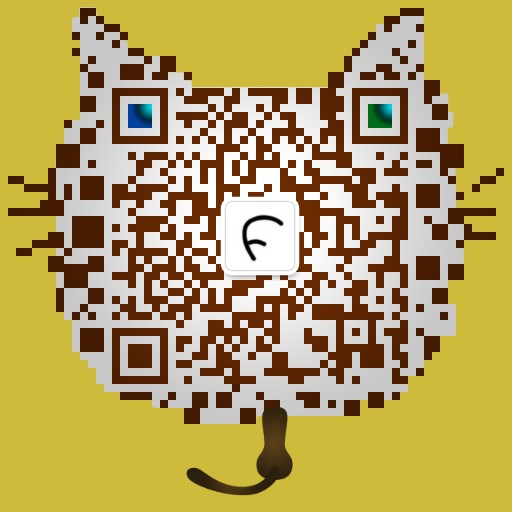9. flutter中常用的container layout详解
简介
在上一篇文章中,我们列举了flutter中的所有layout类,并且详细介绍了两个非常常用的layout:Row和Column。
掌握了上面两个基本的layout还是不够的,如果需要应付日常的layout使用,我们还需要掌握多一些layout组件。今天我们会介绍一个功能强大的layout:Container layout。
Container的使用
Container是一个空白的容器,通常可以用Container来封装其他的widget。那么为什么还需要把widget封装在Container中呢?这是因为Container中包含了一些特殊的功能。
比如Container中可以设置背景颜色或者背景图片,并且可以设置padding, margins和borders。这就为组件的自定义提供了诸多空间。
首先看一下Container的定义和构造函数:
class Container extends StatelessWidget {
Container({
Key? key,
this.alignment,
this.padding,
this.color,
this.decoration,
this.foregroundDecoration,
double? width,
double? height,
BoxConstraints? constraints,
this.margin,
this.transform,
this.transformAlignment,
this.child,
this.clipBehavior = Clip.none,
})
可以看到Container是一个StatelessWidget,它的构造函数可以传入多个非常有用的属性,用来控制Container的表现。
Container中有padding,decoration,constraints和margin这些和位置相关的一些属性,他们有什么关系呢?
container首先将child用padding包裹起来,padding可以用decoration进行填充。
填充后的padding又可以应用constraints来进行限制(比如width和height),然后这个组件又可以使用margin空白包裹起来。
接下来我们看一个简单的Container中包含Column和Row的例子。
首先构造一个container widget,它包含一个Column:
Widget build(BuildContext context) {
return Container(
decoration: const BoxDecoration(
color: Colors.white,
),
child: Column(
children: [
buildBoxRow(),
buildBoxRow(),
],
),
);
}
这里给Container设置了一个BoxDecoration,用于指定Container的背景颜色。
在Child中给定了一个Column widget,它的child是一个Row对象。
Widget buildBoxRow() => Row(
textDirection: TextDirection.ltr,
children: [
Container(
width: 100,
child: Image.asset("images/head.jpg")
)
],
);
这里的Row中又是一个包含了Image的Container对象。
最后运行,我们可以得到下面的界面:

Container中包含两行,每行包含一个Image对象。
旋转Container
默认情况下Container是一个正常布局的widget,但是有时候我们可能需要实现一些特殊效果,比如说组件的旋转,Container提供的transform属性可以很方便的做到这一点。
对于Container来说,transform是在组件绘制中最先被应用的,transform之后会进行decoration的绘制,然后进行child的绘制,最后进行foregroundDecoration的绘制。
还是上面的例子,我们试一下transform属性是如何工作的,我们在包含image的container中加入transform属性:
Widget buildBoxRow() => Row(
textDirection: TextDirection.ltr,
children: [
Container(
transform: Matrix4.rotationZ(0.2),
width: 100,
child: Image.asset("images/head.jpg")
)
],
);
最后生成的APP如下:

可以看到图片已经沿Z轴进行了旋转。
这里的旋转使用的是Matrix4.rotationZ,也就是沿Z轴选择,当然你可以可以使用rotationX或者rotationY,分别沿X轴或者Y轴旋��转。
如果选择rotationX,那么看起来的图像应该是这样的:

事实上,Matrix4不仅仅可以沿单独的轴进行旋转,还可以选择特定的向量方向进行选择。
比如下面的两个方法:
/// Translation matrix.
factory Matrix4.translation(Vector3 translation) => Matrix4.zero()
..setIdentity()
..setTranslation(translation);
/// Translation matrix.
factory Matrix4.translationValues(double x, double y, double z) =>
Matrix4.zero()
..setIdentity()
..setTranslationRaw(x, y, z);
Matrix4还可以沿三个方向进行进行放大缩写,如下面的方法:
/// Scale matrix.
factory Matrix4.diagonal3Values(double x, double y, double z) =>
Matrix4.zero()
.._m4storage[15] = 1.0
.._m4storage[10] = z
.._m4storage[5] = y
.._m4storage[0] = x;
感兴趣的朋友可以自行尝试。
Container中的BoxConstraints
在Container中设置Constraints的时候,我们使用的是BoxConstraints。BoxConstraints有四个包含数字的属性,分别是minWidth,maxWidth,minHeight和maxHeight。
所以BoxConstraints提供了这四个值的构造函数:
const BoxConstraints({
this.minWidth = 0.0,
this.maxWidth = double.infinity,
this.minHeight = 0.0,
this.maxHeight = double.infinity,
}) : assert(minWidth != null),
assert(maxWidth != null),
assert(minHeight != null),
assert(maxHeight != null);
BoxConstraints还有两个构造函数分别是loose和tight:
BoxConstraints.loose(Size size)
BoxConstraints.tight(Size size)
这两个有什么区别呢?如果一个axis的最小值是0的话,那么这个BoxConstraints就是loose。
如果一个axis的最大值和最小值是相等的情况,那么这个BoxConstraints就是tight。
BoxConstraints中还有一个非常常用的方法如下:
BoxConstraints.expand({double? width, double? height})
expand的意思就是最大值和最小值都是infinity的,具体的定义可以从方法的实现中看出:
const BoxConstraints.expand({
double? width,
double? height,
}) : minWidth = width ?? double.infinity,
maxWidth = width ?? double.infinity,
minHeight = height ?? double.infinity,
maxHeight = height ?? double.infinity;
总结
Container是一个非常常用的layout组件,大家可以熟练的使用起来。
点我查看更多精彩内容:www.flydean.com

